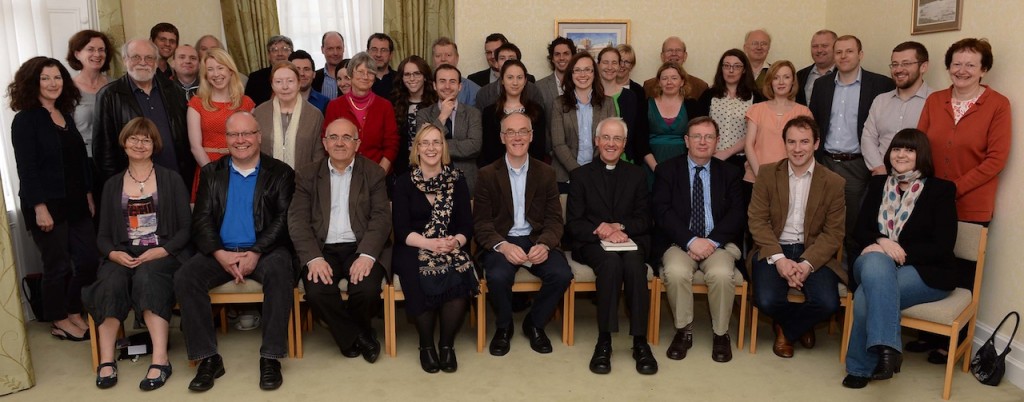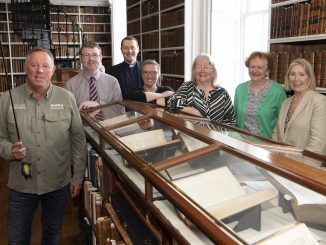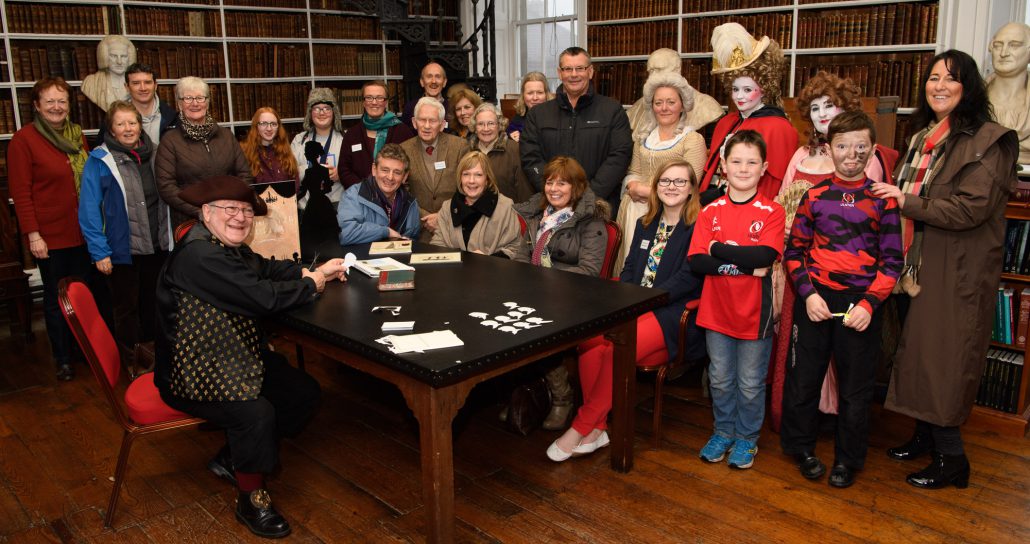

Members of the Eighteenth-Century Ireland Society chose Armagh to hold their annual conference earlier this month. Armagh Public Library and the Cardinal O Fiaich Library and Archive hosted the two-day event to which local people were also invited, particularly for the conference subjects which carried links to eighteenth-century Armagh.
Academics from Ireland, Scotland, England, Canada, America and Australia met in Armagh to hear twenty-six papers on subjects which included eighteenth century Archbishops such as Boulter, Stone and Robinson; Jonathan Swift and Armagh, and Swift’s poetry with its Markethill connections. The range of subjects also highlighted women of the Enlightenment; travel in eighteenth-century Ireland; Irish poetry, fiction and drama of the period; and the growth of boroughs, military barracks and taxation.
Keeper of Armagh Public Library, the Very Revd Gregory Dunstan welcomed the conference organisers and delegates to Armagh, saying, “Armagh owes its identity as a city to its historic ecclesiastical connection with St Patrick and to its eighteenth-century renaissance under that most entrepreneurial of his successors, Robinson. The ‘Enlightenment’ bore fruit in a new consciousness of cities as places to live, of social life and intellectual enquiry. The scholars visiting Armagh will be examining and dissecting aspects of that society, its authors, politics and administrators, to throw light on times that remain foundational to our own.”
The conference organiser, Professor Moyra Haslett of Queen’s University Belfast, noted, “It was an obvious choice to bring our annual conference this year to Armagh, as the city retains so much of its Georgian fabric in the shape of countless eighteenth-century buildings, particularly in the Armagh Public Library, a favourite among many of our members for its unique historic atmosphere, and also because the city remains an invaluable centre for scholarship and research of the period”.




